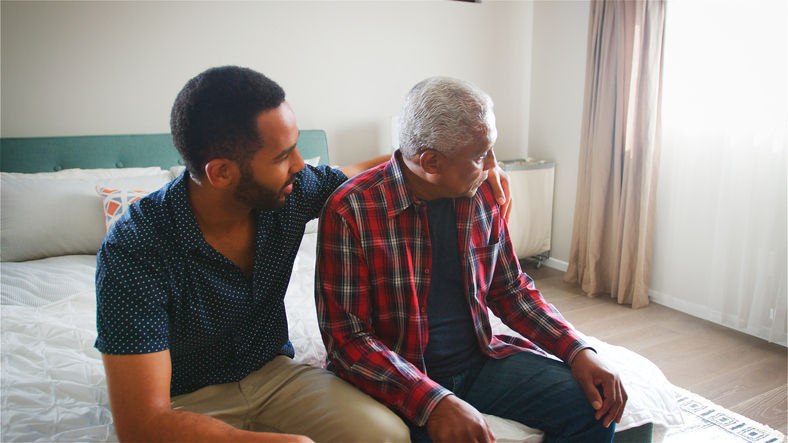GUEST COLUMN: When Care Turns to Concern
- Elder Care Law Blogger
- Jan 10, 2022
- 2 min read

By Cheryl Blanchard
The holidays are behind us and many people may have seen their loved ones for the first time in a year or more. During these visits, family members may have noticed that something seemed a little “off.”
Maybe mom made a mistake following the recipe for the pie she has made for years. Perhaps dad got lost in the middle of a conversation.
We all experience lapses in our cognitive abilities from time to time, especially as we age. Things like stress, depression, illness, and lack of sleep have a negative impact on our memory. While it is normal to occasionally forget someone’s name, where we parked the car, or why we walked into a room, most of us will have an “Aha!” moment where we remember the forgotten information or we are able to retrace our steps to figure things out. The person with dementia is not able to do this.
When should you worry? Any of the following behaviors might be cause for concern.
Forgetting the names of familiar objects or people.
Using the same word over and over.
Asking the same questions as though they hadn’t just been answered.
Misplacing items and being unable to locate them.
Getting lost in conversations and being unable to find the words to participate.
Getting lost while driving or walking in familiar areas.
When these things begin to have an impact on a loved one’s daily life, it is time to get them evaluated.
Start with a thorough physical exam to rule out things like an infection, medication side effects, vitamin deficiency or untreated depression, all of which can cause symptoms of dementia.
If no medical cause is identified, you will want a cognitive screening done. Many primary care doctors do this routinely. If your loved one’s doctor doesn’t, ask for this screening or ask for a referral to a gerontologist or neurologist. Common tests used to screen for dementia include the Mini-Mental State Exam (MMSE), the St. Louis University Mental Status (SLUMS), and the Montreal Cognitive Assessment (MOCA). Once a diagnosis is made, treatment can begin. The sooner treatment begins, the better it will be for your loved one.
It can be difficult to learn that a loved one has dementia. Alzheimer’s Tennessee is here to help families support their loved ones through caregiver consultations, support groups, online Caregiver Academy, and educational materials. We also provide support to the person with a diagnosis.
If you are concerned that your loved one may have Alzheimer’s or a related dementia, we can help.
Cheryl Blanchard is the regional director for the Middle Tennessee area of Alzheimer’s Tennessee. She is a Licensed Master Social Worker, Certified Dementia Care Specialist, and a Certified Case Manager. Contact Cheryl at cheryl.Blanchard@tnalz.org, (615) 580-4244 or www.alztennessee.org.







Lc88 ra mắt và phát triển với sứ mệnh chính tạo nên môi trường cá cược chất lượng an toàn nhất cho thành viên. Nền tảng không ngừng cập nhật kho game, phát triển dịch vụ sản phẩm tạo nên không gian giải trĩ mãn nhãn nhất cho mọi khách hàng
Start with a thorough Adobe AD0-E724 exam dumps to rule out things like an infection, medication side effects, vitamin deficiency or untreated depression, all of which can cause symptoms of dementia.